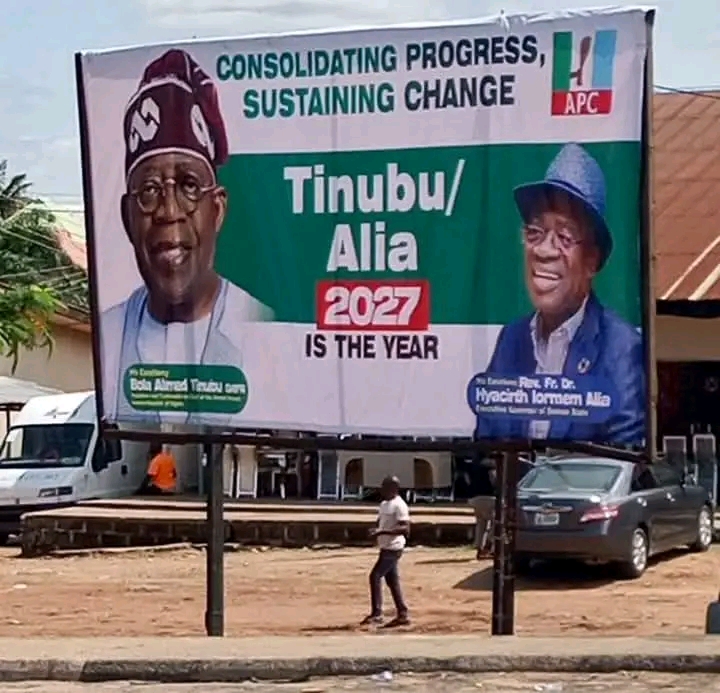News Analysis: By Abdul Lauya
In the wake of the Yelewata massacre in Benue State, where over 150 lives were extinguished in a single night, the political elite and military brass have once again demonstrated their uncanny ability to turn tragedy into theatre. As charred bodies smoldered and survivors clung to life, the political machinery shifted gears, erecting 2027 campaign billboards featuring President Bola Tinubu and Governor Hyacinth Alia. This macabre juxtaposition of mourning and politicking is not an anomaly but a recurring motif in Nigeria’s governance saga.
The presidency, in a rare moment of clarity, disowned these premature campaign materials, urging supporters to cease such activities. Yet, the damage was done. The optics of celebrating electoral ambitions amid such carnage are inescapable. It’s as if the blood of the innocents serves as a backdrop for political aspirations.
Meanwhile, the military’s response has been equally theatrical. The Chief of Army Staff’s relocation to Benue, following the killing of 21 individuals, was hailed as a decisive move. However, this gesture rings hollow when juxtaposed against the backdrop of over 6,896 lives lost in Benue alone since the current administration took office . The military’s presence, rather than being a symbol of protection, has often been perceived as an occupying force, complicit in the very insecurity it purports to quell.
The rhetoric from the political and military elite is laced with promises of security and justice. Yet, the reality on the ground tells a different story. Communities lie in ruins, families are displaced, and the perpetrators operate with impunity. The elites, ensconced in their fortified abodes, continue to play their deadly games, indifferent to the suffering of the masses.
In this theatre of the absurd, the citizens are the unwilling actors. Their cries for justice are drowned out by the cacophony of political manoeuvrings and military posturing. The time has come for the populace to reclaim the narrative. A revolution is not merely a call for change but a demand for accountability, transparency, and justice. It is a call to dismantle the structures that perpetuate this cycle of violence and impunity.
The elites have shown their cards, mourn when convenient, politic when possible, and celebrate in disguise. It is time for the citizens to rise, to demand a nation where lives are valued, where justice is not a commodity, and where the blood of the innocent is not a stepping stone to power.
The revolution is not a distant dream; it is a necessity for survival. It is time to reclaim Nigeria from the scavengers, marauders, and plunderers who have held it hostage for far too long.
For advert placement and inquiries, publication of press releases, and news coverages, please call: Phone: 08052898434 Email: editor@eyereporters.com, click here to view the advert rates.



